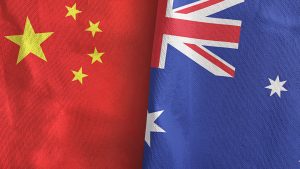In a significant move signaling improved bilateral relations, China’s Premier Li Qiang is set to visit Australia between June 15 and June 18, marking the first visit by a Chinese premier since 2017. Australian Prime Minister Anthony Albanese has highlighted this visit as “another important step” toward stabilizing the often tumultuous relationship between the two nations.
The four-day visit will see Li visiting three Australian cities: Adelaide, Canberra, and Perth. This visit follows Albanese’s trip to China last November, during which leaders of both countries agreed to restore essential bilateral dialogues and explore further cooperation across multiple sectors. Li’s visit represents a continuation of the pattern of reciprocal visits by foreign ministers from Australia and China, likely further contributing to stabilizing China-Australia relations.
Li’s visit may lead to breakthroughs on specific issues, such as lifting China’s ban on importing live lobsters from Australia. However, more profound challenges, especially mutual skepticism and strategic competition between the two countries in areas such as the South China Sea, may persist and are unlikely to be resolved through a single visit. These issues are intricately linked with broader global dynamics, particularly the increasingly explicit rivalry between China and the United States.
China remains Australia’s largest trading partner, with Australian resources and energy exports forming the backbone of this trade relationship. However, recent years have seen tensions flare between the two countries. Notably, after Australia’s previous government called for an international investigation into the origins of COVID-19, China imposed a series of trade barriers that affected Australian exporters. While many of these barriers have since been lifted under Albanese’s administration, a final obstacle for Australian exports to China remains – Beijing’s ban on importing live lobsters from Australia.
The economic interdependence between China and Australia is undeniable. During his visit, Li Qiang will meet with representatives from big Australian companies in Perth, noting China’s significant interests in Australia’s resources industry. Li is also tipped to visit a Chinese-invested lithium enterprise in Western Australia, underscoring the strategic importance of Chinese investments in Australia’s critical minerals sector.
Despite this, national security concerns have led Australia to block Chinese investments in certain areas, notably 5G technology, highlighting that the close economic and trade relations between China and Australia cannot be taken for granted. Political involvement could potentially undermine economic cooperation.
Li’s visit will allow Australia and China to address these complex issues directly. Key topics on the agenda will probably include trade, security, and human rights. Albanese has stated that he plans to raise the recent military confrontations between the two nations and the case of Australian writer Yang Hengjun, who has been detained in China on espionage charges.
The visit also coincides with the ongoing strategic competition in the Asia-Pacific region. Australia’s alignment with the United States through, in particular, the AUKUS security pact, which includes the acquisition of nuclear-powered submarines, has been a point of contention for China. Beijing views this deal as a “path of error and danger,” warning it will exacerbate regional security tensions.
Amid these serious matters, Li’s visit will include a softer, more symbolic aspect – panda diplomacy. The future of Adelaide Zoo’s pandas, Wang Wang and Fu Ni, who have been on loan from China since 2009, is expected to be a topic of discussion. These pandas have become beloved symbols in Australia, and the public will closely watch any decisions regarding their future.
A recent poll from the Australia-China Relations Institute (ACRI) at the University of Technology Sydney (UTS) indicates that while Australians are wary of China’s government, they acknowledge the importance of maintaining strong ties. The duality in public opinion – simultaneously recognizing the relationship’s economic benefits and security concerns – highlights the complex interplay of cooperation and competition in Australia-China engagements. As Li’s trip unfolds, the focus will be on how both countries navigate this complicity.
While the Chinese premier’s visit represents a positive step for Australia-China relations, it is only one part of a longer and potentially uneasy journey toward stabilizing and strengthening the bilateral ties. The relationship between Australia and China is deeply embedded in more profound global power structures, notably the relationship between China and the United States. Continued dialogue and mutual understanding will be crucial in addressing the deeper, more entrenched issues that remain.
Likely areas for Australia and China to work together include not just trade but climate change, education, cleaner energies, and cultural exchanges. As Albanese has noted, healthy, smooth, and productive relations between Australia and China can “benefit everyone in the region.”
For Australia, Li Qiang’s visit is an opportunity to showcase its values, strengths, and commitment to a balanced and pragmatic foreign policy. In a more optimistic view, improved relations between Australia and China might even serve as a model for peaceful coexistence between countries with different political systems and ideologies, inspiring the improvement of other bilateral relations.

































